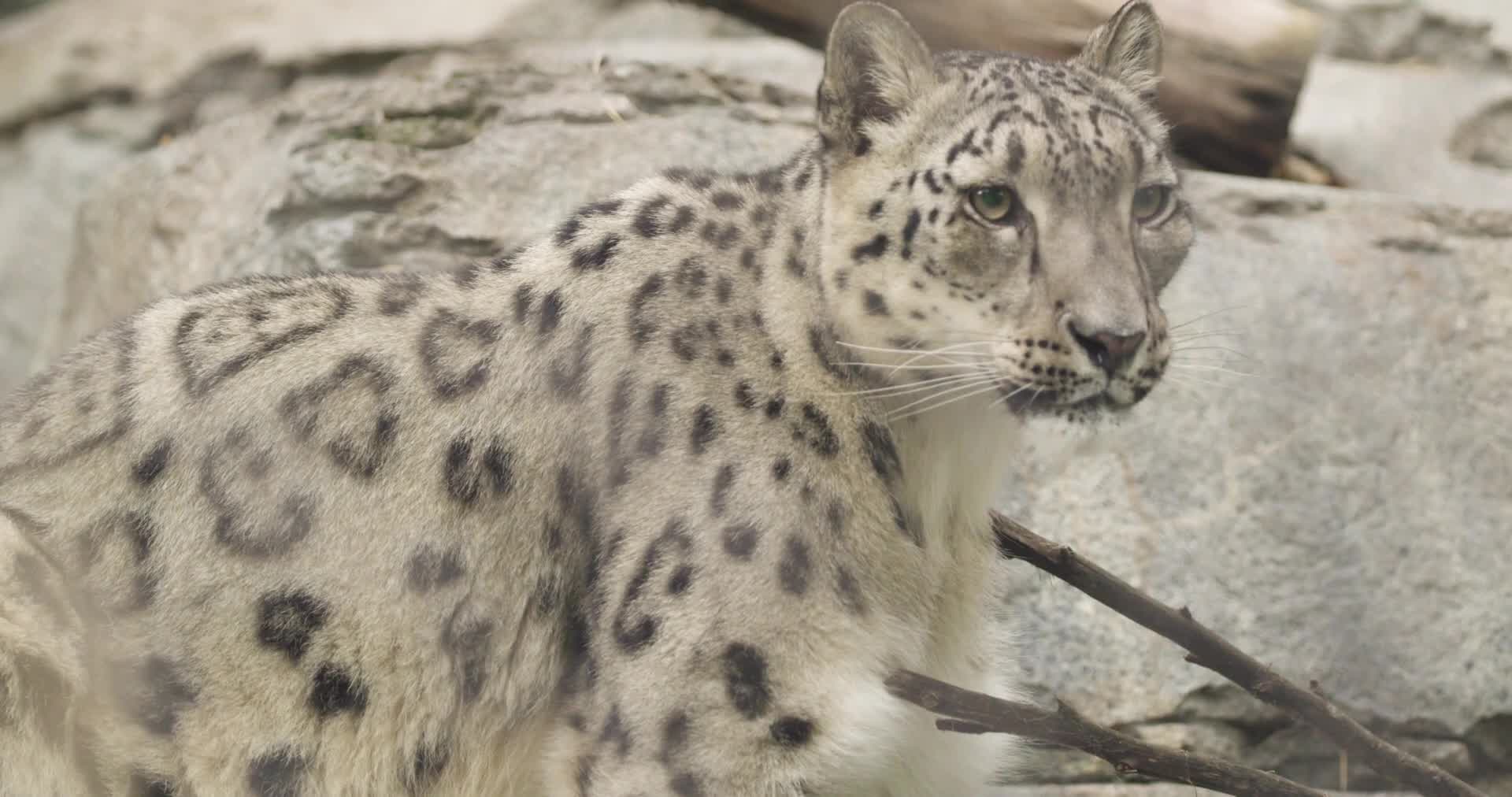Snow leopard at San Diego Zoo suspected of having COVID-19, results pending
SAN DIEGO - San Diego Zoo officials suspect an unvaccinated male snow leopard has tested positive for COVID-19, according to a press release.
Zookeepers said they noticed the animal had a cough and nasal discharge earlier this week. They collected fecal samples, which confirmed the presence of the coronavirus. The California Animal Health and Food Safety Laboratory System also received a sample and confirmed the presence of the coronavirus.
However, results from the U.S. Department of Agriculture and National Veterinary Services Laboratories are still pending.
RELATED: COVID vaccine for zoo animals in Wisconsin
Wildlife officials said the leopard is doing well and has shown no additional symptoms. They said he does live with a female snow leopard and two Amur leopards and those animals possibly have been exposed. The animals are being quarantined and monitored. Their habitat is closed to visitors until further notice.
Officials said it’s not known how the male snow leopard contracted COVID-19 even though the zoo has safety protocols in place, including the use of PPE, cleaning and sanitization measures, medicines and quarantines for new arrivals. Employees who are not vaccinated are required to masks.
"While we await the results of tests to determine if the snow leopard is positive for the virus that causes COVID-19, we can assure you the snow leopard and the Amur leopards who share his habitat are receiving excellent care," Executive Director Scott said. "Our veterinary teams and wildlife care specialists at both the Zoo and Safari Park are highly skilled, dedicated professionals who work tirelessly to ensure the well-being of the wildlife in our care."
The zoo further stated the San Diego Wildlife Alliance has recently received COVID-19 vaccines for animals which were donated by Zoetis, an animal health company. Zoo officials said they’re currently working to vaccinate the most at-risk animals from getting the virus.
RELATED: Snow leopard at Louisville Zoo tests positive for coronavirus; test results pending for 2 others
It’s not the first animal at the zoo to contract COVID-19.
In January, the gorilla troop at the Safari Park contracted SARS-CoV-2 from an asymptomatic wildlife care specialist. The troop has since recovered.
Other zoos across the country have dealt with similar cases.
In December, at least one of three snow leopards living at the Louisville Zoo tested positive for COVID-19.
Around the world, many scientists and veterinarians are now racing to protect animals from the coronavirus, often using the same playbook for minimizing disease spread among people: That includes social distancing, health checks and, for some zoo animals, a vaccine.
Jordan Smith and the Associated Press contributed to this report. This story was reported from Los Angeles.


